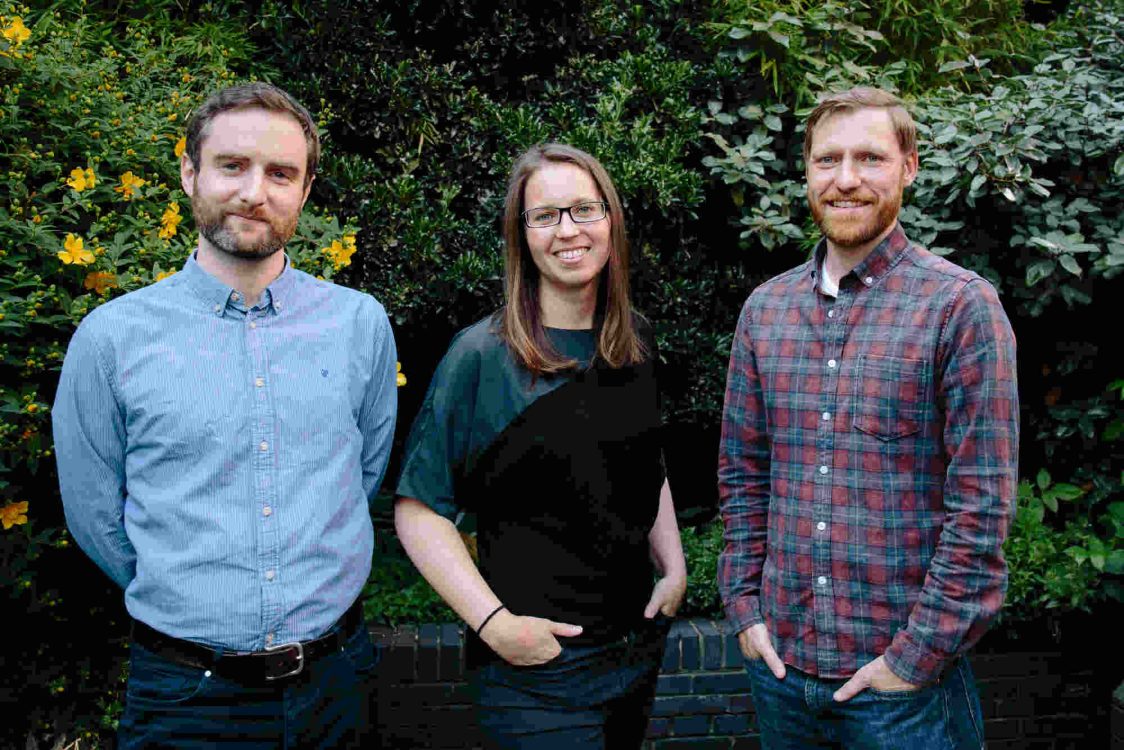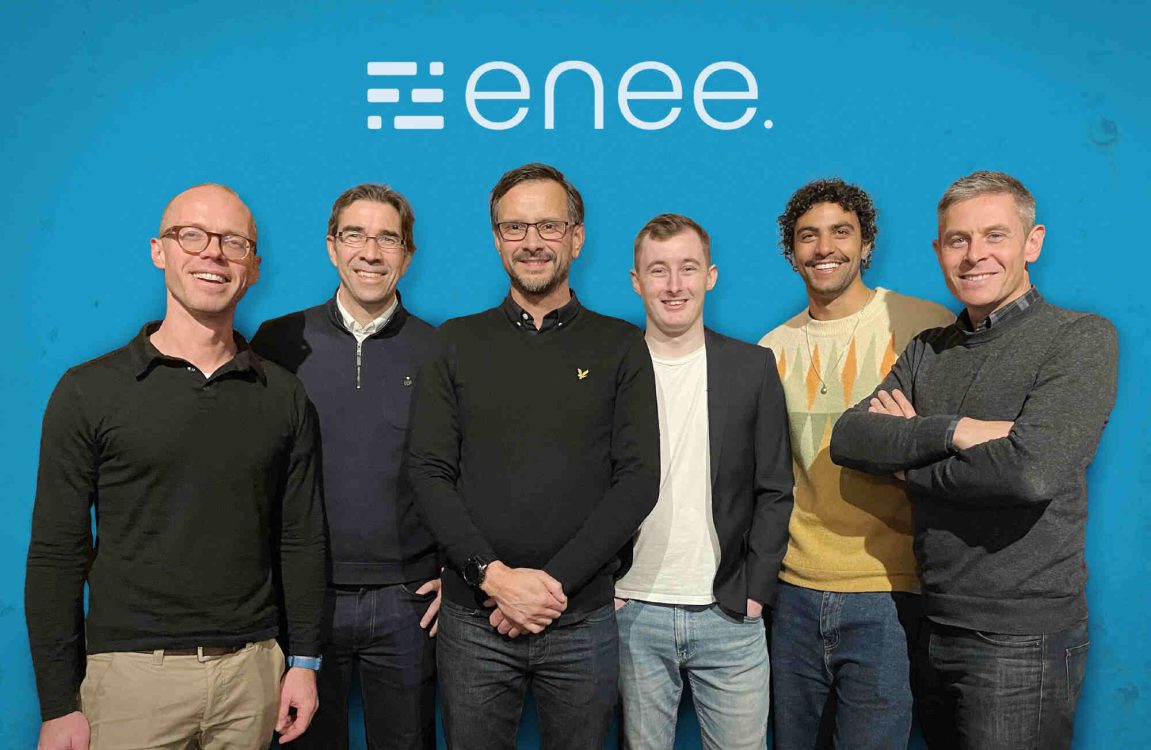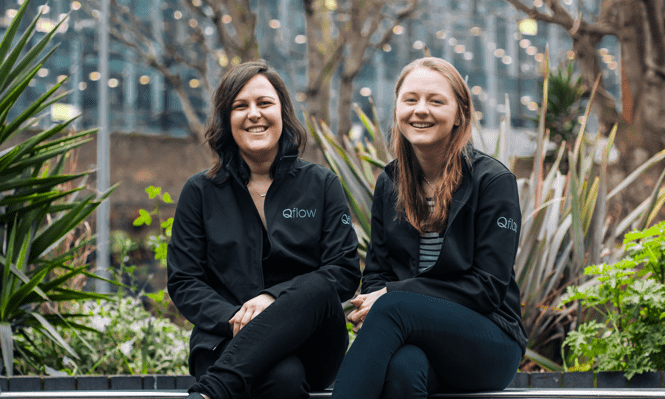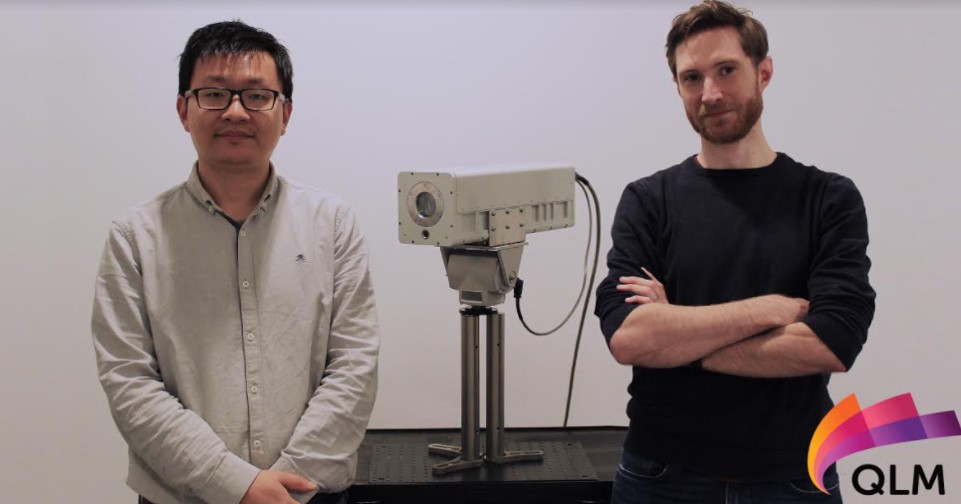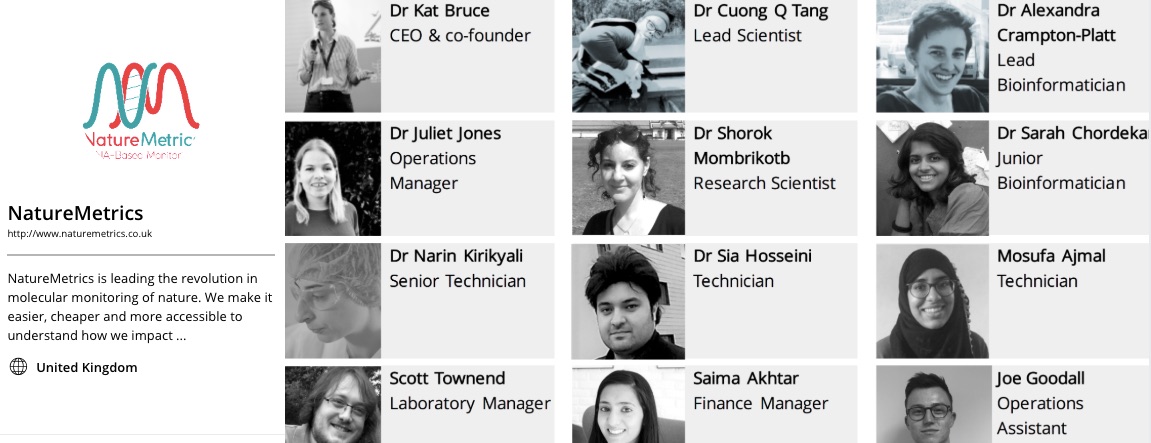Nature Metrics secures £6.5 million Series A investment led by Acuity Investments

Fast Growing nature-data business secures £6.5m investment to scale-up its DNA-based bio-monitoring business
- Investment will help grow product range which provides data to businesses about their impacts on nature, using DNA left behind in water and soil.
- NatureMetrics Ltd set for rapid growth as businesses, investors and governments wake up to the need for good data on nature to drive a reversal in current rapid decline.
- The business, led by three female executives, secures Series A investment from ‘Green’ VCs and business angels.
Today NatureMetrics announces a £6.5m investment to expand its growing business delivering biodiversity data to business, NGOs and governments using DNA. The company surveys biodiversity at scale using tiny traces of DNA left behind in the environment by all species from bacteria to blue whales. Dr Kat Bruce, the company founder and CTO said:
“Forensic scientists have used DNA to identify individuals at crime scenes for years – now we can use our technology to identify the whole range of species, from bacteria to birds, present in the environment using small samples of soil or water. Our technology can identify tiny fragments of DNA left behind by species and pinpoint exactly which species it is from.”
The Investment round was led by Acuity Investments and investors include SYSTEMIQ, a consulting and investment firm that backs system-changing technology start-ups in the area of Nature, Climate and Materials and the Green Angel Syndicate. Irena Spazzapan, Partner in SYSTEMIQ said:
“we know we’re losing nature at a rapid rate but to date we’ve not had the ability to measure nature at scale to set global goals and to enable businesses to set targets and measure their progress. We can’t manage what we can’t measure. NatureMetrics can replace nets and traps and binoculars with scalable, comprehensive monitoring technology to finally enable companies and investors to understand and manage their impact on nature.”
Also this week the business signed the deal with Innovate UK for a £250,000 grant to develop in-field detection methods for invasive species which have a significant negative impact on natural species populations. The opportunity to detect species directly in the field using similar technology to the lateral flow tests for COVID opens up a whole new world of possibilities for the business, including biodiversity conservation and disease monitoring that originate in nature.
NatureMetrics is run by three women: founder and CTO Dr Kat Bruce; CEO Katie Critchlow; and COO Dr Juliet Jones. The company currently employs 45 people including 23 PhDs but expects that to grow to over 70 by the end of the year.
The business has already processed tens of thousands of samples for clients all over the world, helping businesses and conservation groups to survey a wide range of environments from surveying ponds for infrastructure projects in the UK to coral reefs in Mozambique and providing data for environmental impact assessments for wind farms, hydropower and mines. Now it expects to move up the value chain beyond just on-site biodiversity monitoring to deliver nature data to ESG investors, consumer supply chains and governments.
CEO Katie Critchlow who is also on the advisory board of the All Party Parliamentary Group on Sustainable Finance added:
“Businesses are already working hard to set and measure Climate Change targets towards the global goal of Net Zero by 2050. Biodiversity is the next Carbon, but to date very little data exists on which to take decisions. NatureMetrics are supporting are creating a unique dataset on biodiversity and impact from around the world. We’re growing an exciting commercial business and also having a positive impact on nature by giving business biodiversity data with which to make better decisions.”
The investment will fund an expanded team of people to engage clients all over the world including North America, Africa and South East Asia, spanning existing client sectors such as marine, mining and renewable energy to new sectors such as natural carbon storage projects and agriculture.
—–ENDS—-


